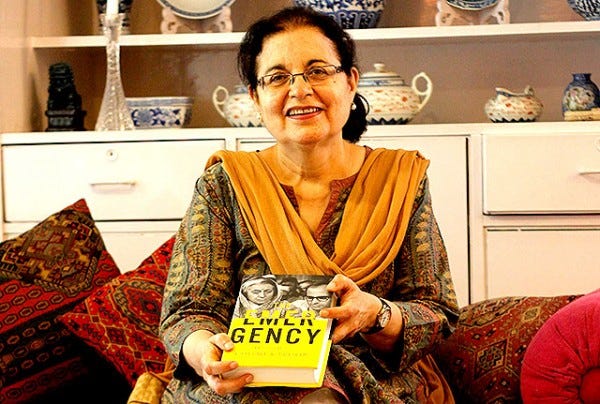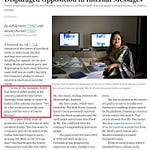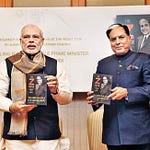
An acclaimed Indian Express journalist, whose husband was jailed during the Emergency of 1975, says governments no longer need to take Indira Gandhi’s route of introducing censorship to control the media or the message that reaches the people.
“Parties have found enough ways to control the media without having to formally declare censorship. Governments have so much power, and financial control, that most owners would succumb [even without formal censorship],” says Coomi Kapoor, the author of The Emergency.
“People know what happens if they don’t toe the line. Owners are after all businessmen.”
45 years ago, Coomi, then a young Express reporter, experienced first-hand the reign of terror unleashed by Indira Gandhi and her son Sanjay Gandhi, and his coterie.
Her husband Virendra Kapoor, a journalist with the Financial Express, was imprisoned, and her brother-in-law Subramanian Swamy, was on the run to evade arrest.
In the journalism podcast J-POD, Coomi Kapoor says while Indian media outlets are stronger and more professional now than in 1975, their dependence on government permissions and largesse makes them susceptible to its pulls and pressures.
“No ruler would be foolish enough to openly declare censorship [today]. There are enough subtle ways to bring it in quietly.
“Today, journalists by and large are in a mood to fight, but whether their owners will support them is a different matter.
Coomi suggests that prime minister Narendra Modi has seamlessly imported the method of media control he employed as chief minister.
“Indira Gandhi was more concerned about her image as a liberal at least for her admirers abroad. Narendra Modi is more cynical. When he was Gujarat CM, journalists were not allowed into the secretariat unless they had appointments.
“They frowned on the free flow of information. They have always not liked politicians to meet with journalists, they have not allowed officials to meet with journalists. Everybody’s looking over the shoulders before they are willing to talk to the media. The same atmosphere seems to be prevailing today.”
The best-kept secret of Emergency
“Why did Indira Gandhi lift the Emergency and call for elections? Did she think everything was in her favour and she could legitimise her rule? Did she hate the press she was getting in the foreign press that Nehru’s daughter has derailed India’s demcoracy? I don’t think it was genuine love for democracy that made her do it.”
Media heroes during Emergency
Indian Express owner Ramnath Goenka; Kuldip Nayar, editor of Express News Service; S. Nihal Singh of The Statesman, A.D. Gorwala, an ex-bureaucrat who brought out a newsletter called Opinion.
Media in 2020 is stronger than in 1975
“Back then, publications were very status quoist. They did not take on government in any form. There was very little investigation of any sort. People did not have strong views, and publications were not generally anti-government.”
More difficult to muzzle media today
“Public has far more avenues from which they can get news. Those days it was word of mouth. Today social media is full of all kinds of views. Different matter whether they are credible. It’s much more difficult to muzzle media today.”
Listen to the full Coomi Kapoor conversation on J-POD
Also read: B.G. Verghese on the day Emergency was declared
Kuldeep Nayar: Hindu, HT were the worst offenders in 1975
H.Y. Sharada Prasad: Middle-class won’t understand Indira
Did a newspaper interview bring an end to Emergency?












Share this post